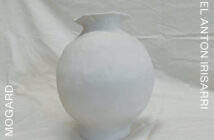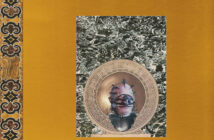
Phil Maggi makes voices speak to each other across cultures and generations in ritual enchantment. Even the photo portrait on the cover is a close-up of a young woman who could belong to any one or any mix of cultures and could belong to most any time.
Claiming inspiration from sources as diverse as klezmer music, Leadbelly, G. I. Gurdjieff, Werner Herzog and the city of Istanbul, he might also invoke the name Robin Storey, since the opening track, ‘Blood and Heart Weavings’ sounds pulled right off any number of Rapoon´s classic mid-to-late nineties â€ethno-ambient†albums. Perhaps it is an homage.
However, Maggi’s own distinct voice emerges forthwith, as a music box of pretty, spindly tones gives way to open sky and ‘Antecedents’ limps into the drum circle, only to leave healed. Native American, Celtic, Far Eastern, Middle Eastern, Sub-Saharan sounds and sensibilities assimilate precisely with the looped or ambient accompaniment Maggi provides them. A moderate holy racket on ´Hordes´, a spectral loop on ‘Meshes, Ashes’, a lofty cathedral inside which it is pouring rain called ‘The Tumult’.
The album concludes with three ominously named tracks – ‘Slavery’, ‘Witches’ and ‘Chains’ – which seek to permanently loose the bonds of mortality. ‘Slavery’ drums an intimate, fervent chant that reaches down to the soles of the feet as a ravishing eddy of strings sweeps the spirit upward. The song of the ‘Witches’ is startlingly exalted and optimistic, while ‘Chains’ is a synagogue of full of cantors attempting to sing its way out of the abyss.
Like that cover photograph, the music Maggi has created for Ghost Love has sepia tone that lends it an imposing patina, another time now fixed in this one. Even the rhythms sound like they were made in another time and have been trapped in swamp gas and conch shells until now. A fourth world music as envisioned by cargo cult, made of tanned skins and earth and crates that fell from the sky.
Stephen Fruitman



